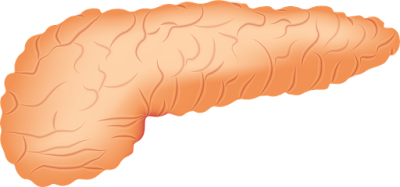Diet for liver problems - what to eat and what to avoid?
Diet for liver problems
Dietary errors, the use of stimulants and taking excessive amounts of medication can lead to damage to the liver, an organ that performs many vital functions in the body. However, the liver has the ability to regenerate.
A proper diet rich in nutrients, the exclusion of stimulants and the use of medicinal herbs will help cleanse the liver and facilitate the regeneration processes of this organ.
A diet that is good for the liver - dietary rules for an ailing liver
A properly composed diet can help heal liver damage. It can also be used prophylactically, especially by people whose diet so far has been rich in heavy, fatty meals and alcohol.
To help the body's liver cell regeneration process, it is helpful to follow a few simple rules:
- eat several small-volume meals per day at regular intervals, and have your last, light meal 2-3 hours before bedtime;
- limit your intake of animal fats such as lard, cream, fatty meats and sausages;
- provide adequate amounts of protein with your diet;
- replace frying with boiling in water, steaming, baking without fat and braising without frying;
- increase the proportion of vegetables in the menu, adding them to every meal;
- limit salt intake
- exclude sweets and processed foods such as fast food from your diet;
- drink at least 1.5 litres of fluids (green and white teas, herbs, still mineral water, vegetable juices) every day;
- use herbs that aid digestion, such as cumin, marjoram, when seasoning food; avoid spicy spices;
- exclude all stimulants, especially alcohol.
The liver regeneration diet must meet age-, gender-, activity- and health-appropriate energy requirements and provide all necessary nutrients.
Liver diet - what to eat?
There are a number of nutrients that support liver function and can facilitate the liver regeneration process. These include phospholipids, especially choline, vitamin B12, flavonoids, vitamin C or protein.
The liver cleansing diet should include:
- whole-grain cereal products - these are a source of B vitamins and minerals;
- soya and soya products - contain phospholipids;
- lean meat and fish - these provide liver quality protein and vitamin B12;
- red, orange, yellow and green vegetables and fruits - are sources of beta carotene;
- potatoes, oatmeal, meat and, with good fat tolerance, egg yolk - contain choline, which is important for liver regeneration;
- nuts and seeds - eaten in moderation, they provide essential unsaturated fatty acids and minerals;
- onions, garlic, cauliflower, avocado, oats - thanks to their sulphur compounds, they participate in the detoxification mechanism, supporting the detoxification function;
- parsley, tomatoes, citrus fruits, cabbage, Brussels sprouts, broccoli - sources of vitamin C and vascular sealing antioxidants;
- other vegetables and fruits - with every meal in raw, cooked, pureed and valuable juices.
For liver problems - what to avoid?
What should be avoided in the diet for liver regeneration? When caring for liver health and regeneration, you should eliminate from your diet:
- alcohol - its complete elimination is essential;
- excessive caffeine (coffee, black tea, energy drinks);
- processed foods.
In addition, caution is needed when taking certain medications that can cause drug-induced liver damage. It is essential to stop smoking. Radical diets that exclude ingredients that support liver function and regeneration are harmful to liver cells.
High-protein and high-fat diets are particularly damaging to the liver parenchyma. Protein metabolism takes place mainly in the liver, which converts the toxic ammonia resulting from protein metabolism into urea, which is then removed by the kidneys. Also, too much fat in the diet forces the liver to work harder. This, in turn, causes a greater production of bile, which can lead to a weakening of the organ's capacity.
Herbs for the liver - a good way to regenerate the liver
A well-rounded diet and the avoidance of factors that damage hepatocytes are the cornerstones of a liver cleansing diet. It is worth knowing that the repair processes can be effectively supported by taking advantage of the healing properties of herbs. They have a cholagogic effect and contain active substances such as silymarin or cynarin, which regenerate the liver parenchyma.
Herbs for the liver can be used in the form of infusions, decoctions or by taking supplements based on extracts from these plants. They will not only help in the long-term process of repairing liver cells, but will also relieve symptoms of indigestion caused by eating too fatty and heavy a meal.
Herbs that support liver function are:
- milk thistle
- artichoke,
- dandelion
- mint,
- liquorice root.
Please note that the use of choleretic herbs is prohibited in liver diseases with bile stasis



Comments
Post a Comment